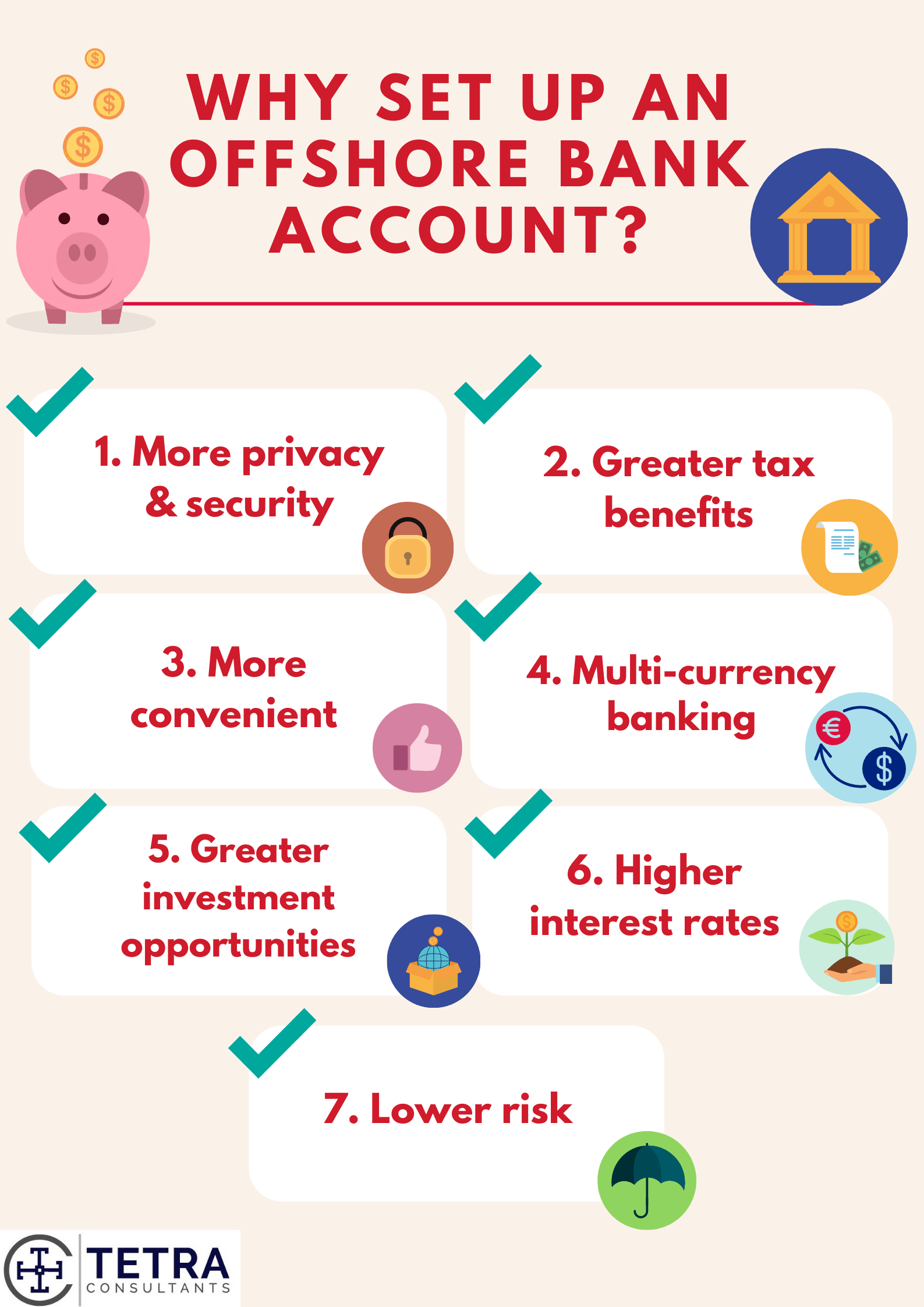Rise by Six: Your Daily Dose of Inspiration
Explore insights and stories that elevate your day.
Offshore Banks: Your Secret Vacation for Wealth
Unlock the secrets of offshore banking and discover how to protect and grow your wealth while enjoying a luxurious getaway!
Understanding Offshore Banking: The Benefits and Risks
Offshore banking refers to the practice of opening a bank account in a jurisdiction outside of one’s home country. This financial strategy offers a range of benefits, including asset protection, tax optimization, and increased privacy. By utilizing an offshore account, individuals can secure their wealth against political or economic instability in their home country. Additionally, offshore banks typically provide a broader array of investment options, allowing clients to diversify their portfolios more effectively.
However, it is crucial to consider the risks associated with offshore banking, as they can be significant. These may include legal complexities, potential tax implications, and the risk of falling victim to scams or less regulated banking environments. It is essential to conduct thorough research and seek the advice of a financial advisor before committing to this banking strategy. Remember, while the allure of financial freedom is enticing, understanding both the benefits and risks is key to making informed decisions.

Is an Offshore Bank Account Right for You? Key Considerations
Deciding whether an offshore bank account is right for you requires careful consideration of various factors. Firstly, it's essential to understand your financial goals. Offshore accounts can provide benefits like asset protection, tax advantages, and increased privacy. However, these benefits vary by jurisdiction and personal circumstances. Therefore, assessing your financial needs and understanding the laws of the relevant countries is crucial. Here are some key questions to reflect on:
- What are your primary reasons for considering an offshore account?
- Are you looking to diversify your assets or protect wealth?
- How comfortable are you with international banking regulations?
Another significant aspect to consider is the cost of maintaining an offshore bank account. Many offshore banks require a minimum deposit and charge monthly maintenance fees, which can vary widely. It's vital to evaluate whether the potential benefits outweigh these costs. Additionally, research the reputation of the bank and the quality of its customer service. An account that is challenging to manage or comes with hidden fees may not be as beneficial as it appears. In summary, weigh the advantages and disadvantages, keeping in mind both your financial situation and the long-term implications of managing an offshore bank account.
How to Choose the Best Offshore Bank for Your Financial Goals
Choosing the best offshore bank for your financial goals involves careful consideration of various factors. First, assess the banking regulations and the reputation of the financial institution. Look for banks that are recognized for their stability and adherence to international banking standards. Furthermore, consider the banking services offered, including online accessibility, multi-currency accounts, and investment options. Prioritizing security features such as encryption and fraud protection is essential for safeguarding your assets.
Next, evaluate the fees associated with maintaining an offshore account. Offshore banks often have different fee structures that may include account maintenance fees, transaction fees, and withdrawal fees. Understanding these costs can help you determine the overall value of the services offered. Lastly, consider the bank's locations and associated benefits, such as taxation advantages and ease of access to your funds. By taking these steps, you can make an informed choice that aligns with your financial goals.